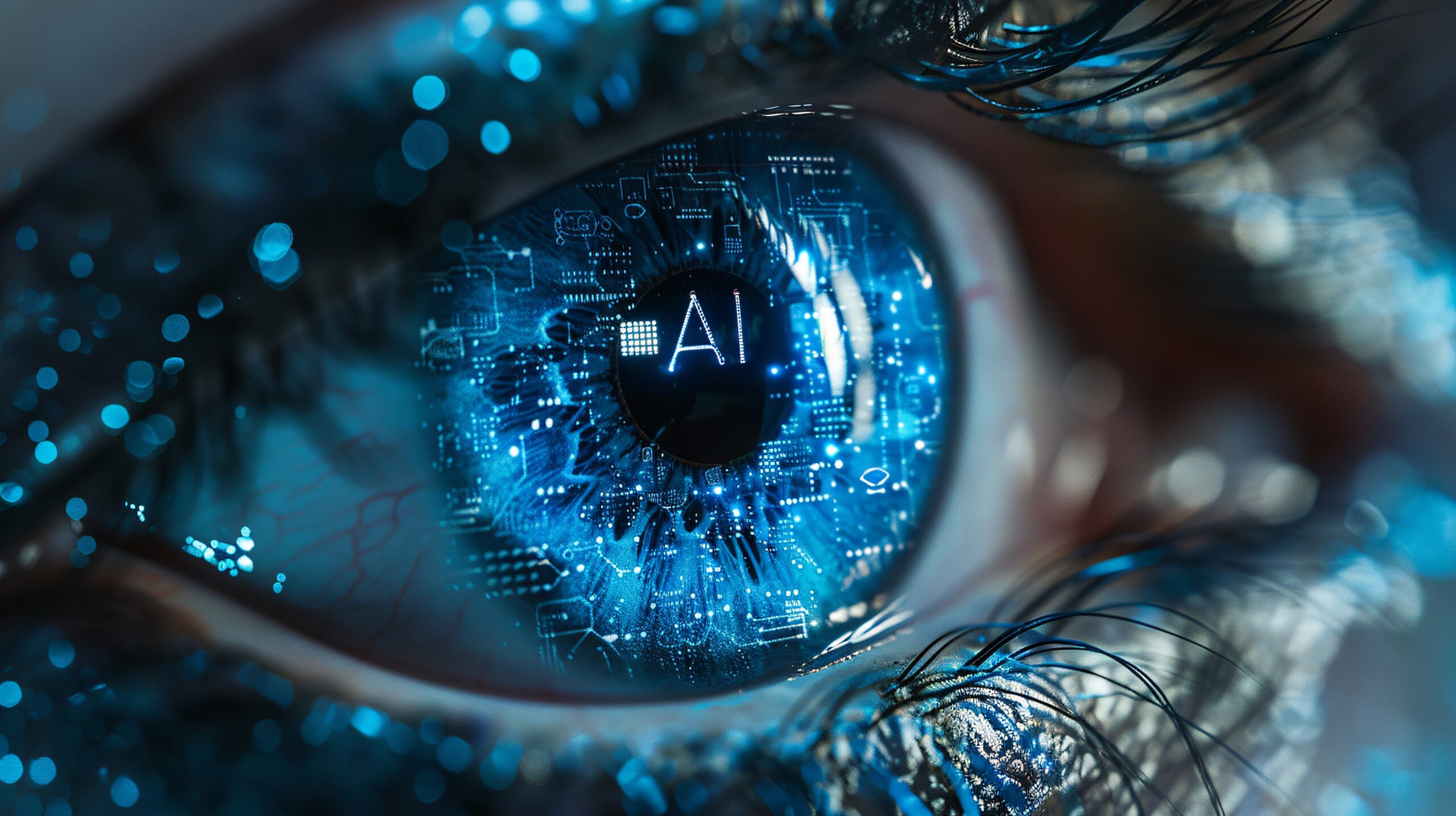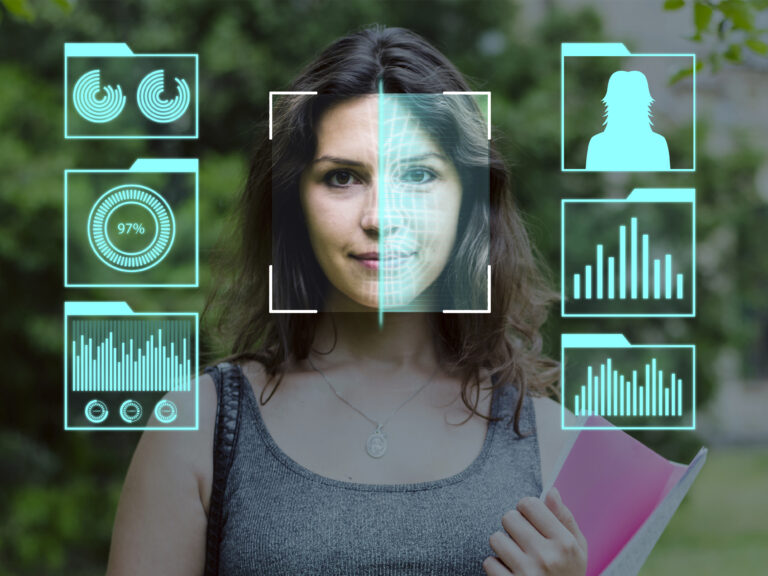The digital revolution continues, and Artificial Intelligence (AI) is driving a profound transformation in digital marketing. Businesses of all sizes are adapting to this new landscape to optimize campaigns, personalize the customer experience, and drive results. This article explores, in detail and in action, the main AI strategies that are reshaping digital marketing, from process automation to intelligent content creation and predictive analytics.
The New Digital Marketing Paradigm
In an increasingly connected world, the amount of data generated daily is immense. Social networks, market research, online interactions and digital transactions create an ocean of information that, if properly explored, can reveal powerful insights into consumer behavior. In this context, Artificial Intelligence presents itself as the key to deciphering this data and transforming marketing strategies in a revolutionary way.
Imagine campaigns that adapt in real time to user behavior, ads that automatically adjust to maximize conversion, and personalized content that speaks directly to each customer’s needs. This is the future that AI is bringing to digital marketing – and it’s already in action.
Top AI Strategies in Digital Marketing
1. Marketing and Process Automation
Automation is one of the pillars that support the integration of AI in marketing. Through intelligent systems, repetitive and operational tasks can be automated, freeing up the team to focus on more creative and high-impact strategies.
-
Automated Email Marketing:
AI tools analyze user behavior and send personalized emails at the ideal time, increasing open and conversion rates. -
Social Media Management:
Algorithms can schedule posts, automatically respond to comments and messages, and identify the best times to engage your audience. -
Ad Automation:
Digital advertising campaigns can be optimized in real-time, adjusting budgets, targeting, and creative based on performance and user interactions.
2. Personalization and Audience Segmentation
Personalization is essential to creating real connections with consumers. AI enables businesses to precisely target their audiences, delivering customized experiences that increase message relevance and drive engagement.
-
Data and Behavior Analysis:
Algorithms analyze browsing, interaction, and purchase histories to create detailed customer profiles. This segmentation enables the creation of highly targeted campaigns. -
Personalized Recommendations:
Recommendation systems, such as those used by large e-commerce and streaming platforms, suggest products and content based on individual preferences, increasing the chances of conversion. -
Chatbots and Virtual Service:
AI-powered chatbots interact with customers in real time, answering questions, offering suggestions and even making sales, personalizing the consumer experience in a scalable way.
3. Smart Content Creation
Content creation is one of the most complex challenges in digital marketing. AI can help with this task in a variety of ways, from generating ideas to producing texts and images.
-
Automated Text Generation:
Tools like ChatGPT can be used to create content for blogs, social networks, newsletters and advertisements, maintaining a consistent tone and optimizing SEO. -
Image and Video Creation:
AI-powered design platforms like MidJourney help produce impactful visuals that can be customized to reflect your brand identity. -
Content Performance Analysis:
AI analyzes which types of content generate the most engagement and conversions, allowing communication strategies to be continually adjusted based on real data.
4. Predictive Analytics and Decision Making
Predictive analytics is another area where AI excels in digital marketing. By interpreting large volumes of data, predictive algorithms can identify trends, anticipate behaviors, and suggest strategic actions.
-
Market Trend Forecasting:
Predictive models analyze consumer data, online behavior, and economic variables to predict future trends and help develop long-term strategies. -
Campaign Optimization:
AI algorithms monitor campaign performance in real time and make automatic adjustments to maximize results, such as budget allocation and ad targeting. -
Dynamic Dashboards and Reports:
AI-integrated Business Intelligence tools provide interactive visualizations and actionable insights, enabling faster, more informed decision-making.
5. Customer Engagement and Experience
Customer experience is critical to the success of any marketing strategy. AI plays a crucial role in making interactions more relevant and meaningful.
-
Multichannel Interaction:
The integration of AI systems enables consistent communication across different channels – social media, websites, mobile apps and chatbot support – offering a unified and personalized experience. -
Real-Time Feedback:
AI algorithms analyze user behavior and provide immediate feedback on what is working and what is not, allowing for quick adjustments to campaigns and communication strategies. -
Augmented and Virtual Reality:
Immersive technologies combined with AI are creating innovative experiences, such as virtual product trials and interactive events, that engage consumers in unprecedented ways.
Benefits of Integrating AI into Digital Marketing
1. Increased Efficiency and Productivity
By automating processes and optimizing campaigns, AI allows marketing teams to focus on strategic tasks, reducing time spent on repetitive operations and increasing overall efficiency.
2. Improvement in the Quality of Service
With the use of chatbots and recommendation systems, consumers receive faster and more personalized service, which contributes to a better user experience and brand loyalty.
3. Cost Reduction
Campaign automation and optimization not only increases efficiency, but also reduces operational costs. Less time and resources spent on manual tasks translates into a higher return on investment (ROI).
4. Decisions Based on Reliable Data
With interactive dashboards and predictive analytics, managers can make more informed and strategic decisions, based on real and updated data, minimizing risks and maximizing market opportunities.
5. Greater Capacity for Innovation
AI opens the door to creating innovative and disruptive campaigns that stand out from the competition. The ability to experiment and adjust strategies in real time boosts creativity and enables the creation of unique and personalized solutions.
Challenges and Considerations in Implementing AI in Digital Marketing
While the benefits are many, integrating AI into digital marketing also brings challenges that need to be carefully managed:
1. Data Quality
The effectiveness of AI algorithms depends on the quality of the data. Incomplete, inaccurate, or biased data can lead to poor decisions and compromise the effectiveness of campaigns.
2. Privacy and Security
With data collection on a massive scale, it is crucial to ensure that consumer information is protected. Companies must strictly follow privacy regulations and invest in security technologies to prevent leaks and abuse.
3. Implementation Cost
While AI can bring long-term savings, the initial investment in technology, training, and integration can be significant, especially for small businesses. Proper planning and scaling of the project is crucial to a positive return.
4. Adaptation and Training of the Team
Implementing AI tools requires teams to adapt to new technologies and processes. Investing in ongoing training is essential to ensure that professionals are prepared to take full advantage of these innovations.
5. Ethics and Transparency
It is important that AI-based decisions are transparent and explainable. Consumers and managers need to understand how algorithms work and how decisions are made, ensuring trust in the system.
Future Trends in Digital Marketing with AI
As technology advances, new trends promise to further transform digital marketing. Some of the main expectations for the future include:
1. Extreme Customization
Personalization will be taken to a new level, with campaigns and content fully adapted to each user’s profile, based on detailed analysis of behavior and preferences.
2. Intelligent Automation
Automation will not be limited to basic tasks; it will be able to make strategic decisions in real time, optimizing campaigns dynamically and continuously.
3. Enhanced Multichannel Integration
Integrated communication across channels – social media, emails, apps and websites – will become even more fluid, providing a seamless and highly personalized user experience.
4. Use of Augmented and Virtual Reality
Immersive technologies combined with AI will transform the way brands interact with their customers, offering interactive experiences that increase engagement and loyalty.
5. Advanced Predictive Analytics
The ability to predict future trends and behaviors will become more accurate, allowing companies to anticipate market changes and proactively adjust their strategies.
The Future of Digital Marketing is Smart
Artificial Intelligence is reshaping digital marketing in profound and lasting ways. By integrating automation, personalization, intelligent content creation, and predictive analytics, companies can not only increase efficiency and reduce costs, but also create more impactful, personalized campaigns that resonate with their audiences.
Investing in AI in digital marketing is investing in the future. Professionals and companies that adopt these technologies are positioned at the forefront of innovation, able to respond quickly to market demands and offer unique experiences to their customers. Whether through virtual assistants, interactive dashboards or automated campaigns, AI opens up a world of possibilities that will transform the way we communicate and do business.
If you want to stand out and take advantage of all the opportunities that the digital age offers, now is the time to explore and integrate Artificial Intelligence into your marketing strategies. Innovation is on the rise, and the future is smart!






